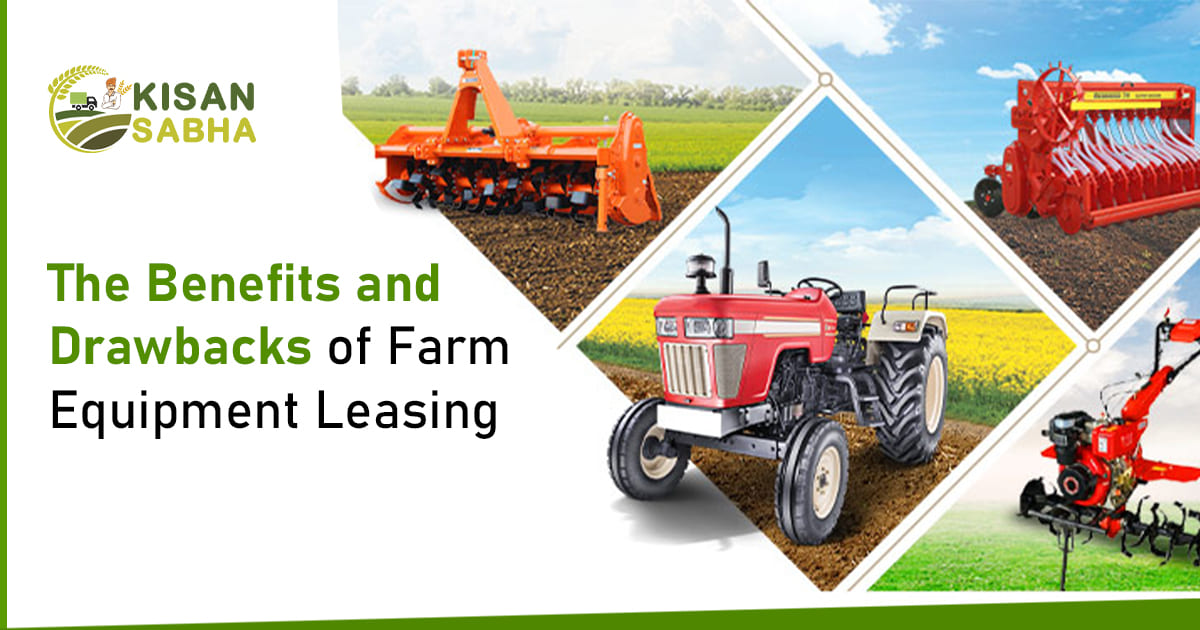It’s difficult to know when to buy or lease farm equipment. Many farmers who want to upgrade their operations still determine whether leasing farm equipment is the best financial move. Leasing farm equipment or infrastructure allows landowners to make improvements to increase their profitability without incurring large upfront costs. However, some people prefer ownership because it provides them with greater flexibility.
There are numerous reasons why producers choose to lease equipment, and the benefits leasing provides can vary depending on the situation of each producer. They can be summarised as business, financial, and tax advantages.
Advantages of Leasing for Business
The real value of equipment comes from its use, not its ownership, even though this method of purchasing machinery is still common in the long run.
Leasing provides a special way to finance the assets you require right away with the flexibility to buy, exchange, renew, or return the equipment at a later time.
Similar to owning a machine, leasing gives you complete control over it for the duration of the lease. You, the lessee, are liable for all labour costs, maintenance fees, and other operating costs. Leasing does, however, return some of the risk of obsolescence to the lessor.
As repair and maintenance costs rise over time, older equipment typically costs more to operate. Equipment can be regularly replaced with leasing. You will always have access to dependable, low-maintenance equipment thanks to a planned replacement cycle.
Leasing also gives you the opportunity to test-drive the newest models of equipment without committing a purchase, enabling you to benefit from improved fuel efficiency, increased production, or new technologies.
At the end of the lease, there is also flexibility. You may opt to buy the equipment, trade it in, extend the lease, or in some cases, just return it and walk away depending on the terms of the lease.
Financial Advantages of Leasing
Leasing is a terrific strategy to raise your bottom line by freeing up working capital and improving cash flow.
Suppose you routinely swap equipment every few years. In that case, leasing can provide cheaper payments than a loan and save you from making substantial capital investments that could otherwise be utilized to develop other parts of your company, cover expenditures, or make upgrades.
A down payment is typically not required for leases. Instead, you will just have to make the initial lease payment, which will allow you to keep your operating capital.
Choose between yearly, semiannual, quarterly, or monthly payments, for example, for increased flexibility. If increasing interest rates worry you, you may lock in a set rate for the duration of the lease.
Tax Advantages of Leasing
Tax planning is another advantage of leasing. A lease can be taxed in one of two ways. There are two types of leases: genuine leases and conditional sales leases. Each has its own set of tax breaks.
A genuine lease permits the lessee to deduct leasing payments as expenditures, decreasing their taxable income. The lessor, as the equipment’s owner, bears the depreciation. The lessee may deduct depreciation or other tax benefits under a conditional sales lease. Your financial condition and current tax legislation will determine the optimal leasing choice for your business. It’s a good idea to contact an accountant or tax specialist before signing a lease.
Drawbacks of Farm Equipment Leasing
Long-term Costs: While leasing can be cost-effective in the short term, over time, lease payments may exceed the cost of purchasing the equipment.
Farmers do not own the leased equipment, limiting their ability to build equity or sell the equipment for cash.
Restrictions and Penalties: Leasing contracts may include usage, mileage, or modification restrictions. Early termination of a lease may result in penalties or additional fees.
Farmers rely on the lessor to maintain and supply the leased equipment.





